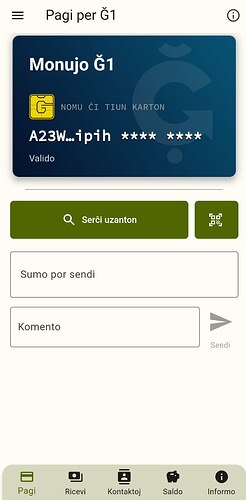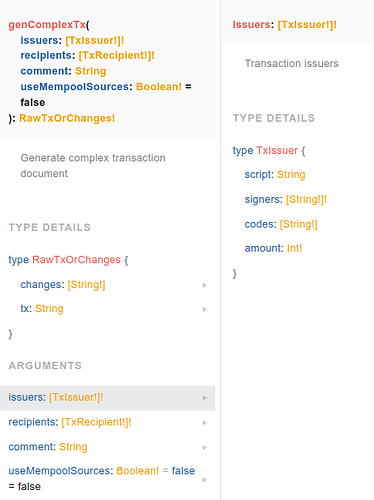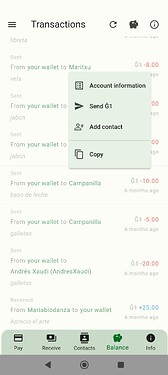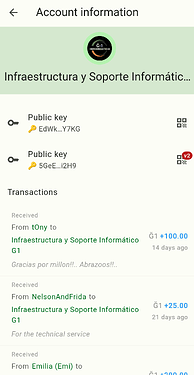Ça vient peut être de flutter ou de la librairie durt qui sont deux de leurs points communs …
Est ce que la version web fonctionne ?
Non Gecko n’utilise plus Durt depuis que l’app est passé sur la v2 de duniter.
C’est un soucis entièrement lié à flutter, je n’ai pas réussi à trouver la cause précise à l’époque.
J’ai testé G1nkgo sur un Samsung A5 SM-A510F réinstallé avec resurrection remix et TWRP (quelle galère avec les tutos approximatifs ![]() )
)
Ça marche bien, pas vu de bugs pour l’instant.
G1nko installé sur Fairphone 3 et testé en live à la Fête des Possibles le week end dernier.
- Import d’un compte Cesium via clef publique + identifiant. OK
- Paiement vers un compte Cesium par QRcode. OK
Navigation intuitive et interface claire ! Bravo !
Amélioration possible : importer un compte Cesium en scannant l’adresse par QRcode au lieu de copier/coller l’adresse. (ou si la fonction existe, alors j’ai pas vu la fonction ![]() ).
).
Ce que j’ai trouvé positivement écoeurant et génial comme idée, c’est la fonctionnalité “recevoir un paiement” sur le mode TPE…!!
I’ve just published the Ğ1nkgo v1.0.1 apk This is a maintenance release that only includes full translation to German (thanks to Andreas Wahlen) and Esperanto (thanks to @flodef). Also in the web version https://g1nkgo.comunes.org/
More info here.
Sorry, the code should be iOS compatible, but I don’t have a Mac to build it or test it.
C’est @bpresles qui avait mis Césium sur Apple.
Je ne sais pas s’il est dispo pour faire de même avec Ğ1nkgo.
Hi @kimamila et all.
I was these days trying to find a way to workaround this that without doubt is the main current issue of g1nkgo.
To summarize, currently you cannot make fast concurrent payments in G1nkgo (something common in a gmarket), and subsequent fast payment are marked as failed and you have to retry later, manually.
The situation is that currently, GVA basic genTx have a simple interface (issuer, recipient, amount, comment) and if I’m not wrong, you cannot select the sources/inputs:
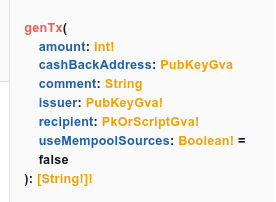
If I send several payments in a short time using a gva node, as @kimamila mentioned, only the first payment is well processed (I was hoping that the duniter gva node, with this interface, will deal with the whole payment processing of sources, etc, but I was wrong).
In the past I opted to use random gva nodes on each payment with the (silly) hope to workaround that.
I also added the retry/failed-payments stuff to don’t lost payments.
Then, I’m trying now to do a more complex/advanced payments take into account the UTXOs. I have the first part more or less done, that is, retrieve the utxos of a pubkey and calculate for a payment which utxos to use, mark as consumed, and allow to do other payments without use that previously consumed utxos.
This weekend I implemented this part (in durt and g1nkgo) but now I need to do the tx with the selected utxos as inputs.
There is an additional genComplexTx that it sounds to me that maybe can do the job of do such a payment (correct me):
But I’m not sure and aslo I’m a bit lost about the arguments (for instance of issuers: [Txissuer]!). And I don’t know if some client or library is using this nowadays via gva.
Other options is to use BMA for this part, but still will be great if I have some API call sample or documentation to follow.
Any help/tip will be appreciated.
I think you should use mempool utxo for transactions in Ginkgo, that should solve your tx problems.
The only case this would make problem is if the mempol used utxo failed to validate in blockchain.
Maybe we should make unit test to compare and choose the best case.
I made a MR for that if you want.
I also published Durt 0.1.7 with you latests changes.
I see that you get utxo from accounts in ginkgo but not sure to understand why you need it since you use GVA to generate de transaction document, by choosing sources and generate changes transactions itself.
If the way GVA choose the utxo himself still have problems, you still can generate the transaction document yourself by choosing utxo with changes transactions, GVA makes it possible, like Cesium and Silkaj do with BMA, but it’s a bit of work to add in Durt, and I never made this kind of thing myself so I could not help.
Maybe @Moul or @vit could help you to generate transaction document yourself since they did it in python, and take exemple from the document generated by GVA.
If you have to make a lot of transactions to debug your work on Durt, you can use durt_cli, i made especially to try and debug durt. It’s a really simple cli tool which use durt lib, usefull if you want to loop things with bash …
Thanks indeed @poka.
I make it work finally after removing some faulty workarounds and your MR. I tried to use mempool in the past but didn’t work neither because I used only on retries after a payment error.
So, again, thanks indeed.
I’ve just published Ğ1nkgo version 1.1.0.
This version includes small improvements, and importantly, allows quick payments in a short period of time (such as quick payments between purchases in markets). That is why it is recommended to update the app. For more details you can read this.
Download the Ğ1nkgo 1.1.0 apk or use Ğ1nkgo via web.
Special thanks for @poka, @kimamila and previously @kapis for help with the fast payment issue.
New version 1.2.0 of Ğ1nkgo released! Includes significant improvements and new features this is why I recommend it use.
It includes among other things: Supports payments to multiple recipients; Auto-recovery from a poor list of nodes; Enhanced transaction display and processing; Clearer error messages in payments. More details here. You can download the package here or use directly in https://g1nkgo.comunes.org.
PS: In the release page there is a video of the multi payment feature that is useful for multiple payment in markets and events (In the video I paste a big list of collaborators of a recent event). Sorry it’s in Spanish.
I just released version 1.2.1 of G1nkgo which includes new context menus in contacts and transactions with additional information from other people’s accounts, basic support of duniter v2 functions, better selection of duniter nodes and many other improvements. It can be downloaded here or used directly via the web at https://g1nkgo.comunes.org/ More details here. Some screenshots:
Great idea ! But is it the pubkey v2 or an address (v2) ?
We need to standardize the vocabulary ?
